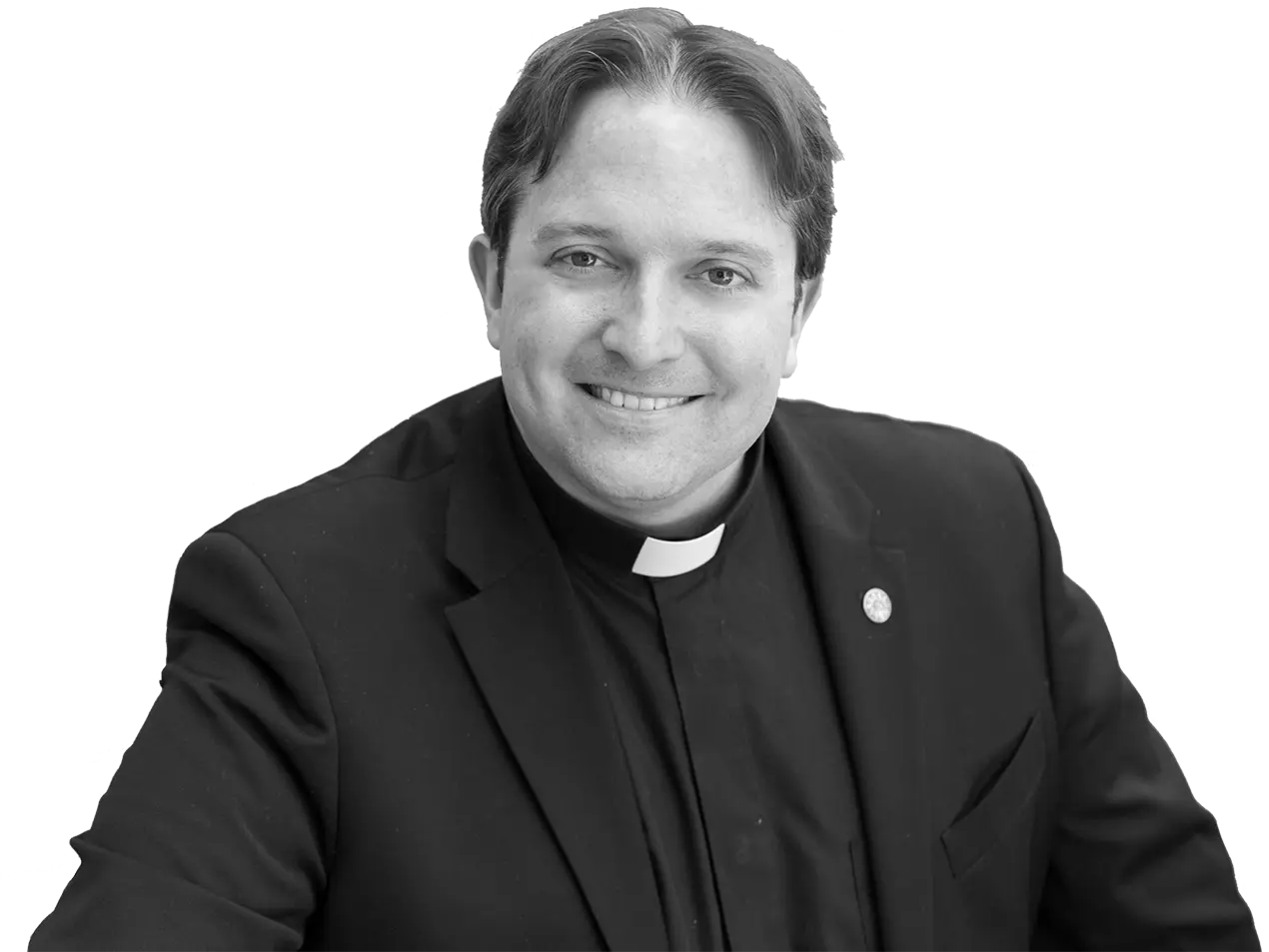 Fr Matthew Charlesworth SJJesuit PriestSociety of JesusJesuit priest working in Southern AfricaFr. MatthewCharlesworthSJ
Fr Matthew Charlesworth SJJesuit PriestSociety of JesusJesuit priest working in Southern AfricaFr. MatthewCharlesworthSJ
 5th Sunday in Ordinary Time
5th Sunday in Ordinary Time
Date: | Season: Ordinary Time before Easter | Year: C
First Reading: Isaiah 6:1–2a, 3–8
Responsorial Psalm: Psalm 138:1–5, 7–8
| Response: Psalm 138:1c
Second Reading: 1 Corinthians 15:1–11
Gospel Acclamation: Matthew 4:19
Gospel Reading: Luke 5:1-11
Preached at: the Chapel of the Most Holy Name, Kolvenbach House in the Archdiocese of Lusaka, Zambia.
Ladies and gentlemen, brothers and sisters in Christ,
Today, on this 5th Sunday in Ordinary Time, we stand before Scripture that is anything but ordinary. The Word of God does not meander through the mundane; it seizes us, confronts us, and calls us forth to something greater than ourselves. These readings remind us that God does not call the qualified—He qualifies the called.
Let’s begin with Isaiah, that great prophet who, at the moment of his divine commission, is utterly overwhelmed. In the temple, in the presence of God’s glory, he cries out, “Woe is me! I am a man of unclean lips!” Isaiah is not deluded about his own standing—he knows he is unworthy. But what happens? God acts. A burning ember from the altar purifies his lips, and he is made ready. He is not made worthy by his own merit but by God’s action. And so, when the Lord asks, “Whom shall I send?” Isaiah, now emboldened, responds with those immortal words: “Here I am; send me!”
But make no mistake—this will not be an easy mission. Isaiah will preach to a king who refuses to listen. His message will be rejected. He will appear, by all earthly measures, to have failed. And yet, he must persevere, trusting not in himself, but in the One who sent him.
Then we turn to Paul, writing to the Corinthians. Over the past few weeks, we have heard him speak about spiritual gifts, but today he moves from the experiential to the historical. He is not offering personal opinion; he is proclaiming the unshakable foundation of our faith. “Christ died for our sins, was buried, and rose again on the third day.” And how do we know? Because he appeared to Peter, to the Twelve, to more than five hundred at once, and finally, to Paul himself. This is not a myth, not a metaphor, but a concrete reality attested by witnesses—by those who encountered the risen Lord.
Paul is deeply aware of his own unworthiness. He calls himself “the least of the apostles,” unfit for the mission. And yet, “by the grace of God, I am what I am.” Not by his own doing, not by his own eloquence, but by the power of the risen Christ.
And then we come to the shores of Galilee, where Simon Peter and his companions have spent the night fishing. They are weary, discouraged, and have caught nothing. Then Jesus steps into Peter’s boat. He teaches the crowds and then tells Peter, “Put out into the deep and lower your nets.” And despite every instinct, despite the fact that experience tells him it’s useless, Peter obeys. What happens? A miraculous catch—so overwhelming that the nets nearly break.
Peter, much like Isaiah, falls to his knees: “Depart from me, Lord, for I am a sinful man.” But Jesus does not call the perfect. He calls the willing. And so he tells Peter, “Do not be afraid. From now on, you will be catching men.”
Do you see the pattern? Isaiah, Paul, and Peter all begin from a place of inadequacy, of human frailty. But God does not leave them there. He equips them, strengthens them, and sends them forth.
And what of us? What of our call?
We, too, might feel unworthy. We, too, might feel that we have failed, that we are not enough. But friends, this is the Lord’s work. Success is not measured by our standards but by God’s plan. Whether we are called to teach, to serve, to lead, or to love, we must answer as Isaiah did: “Here I am; send me.”
And finally, let us not forget the heart of our mission. We are not simply called to work—we are called to witness. And what is at the core of our witness? It is this: Christ has died, Christ is risen, Christ will come again. This is not one truth among many. It is the truth. It is the foundation upon which everything else stands.
So, my friends, let us cast our nets. Let us trust the One who calls. And let us go forth, knowing that the work is His, the victory is His, and we need only to be faithful.
Amen.
In preparing this homily, I consulted various resources to deepen my understanding of today’s readings, including using Magisterium AI for assistance. The final content remains the responsibility of the author.
← Back